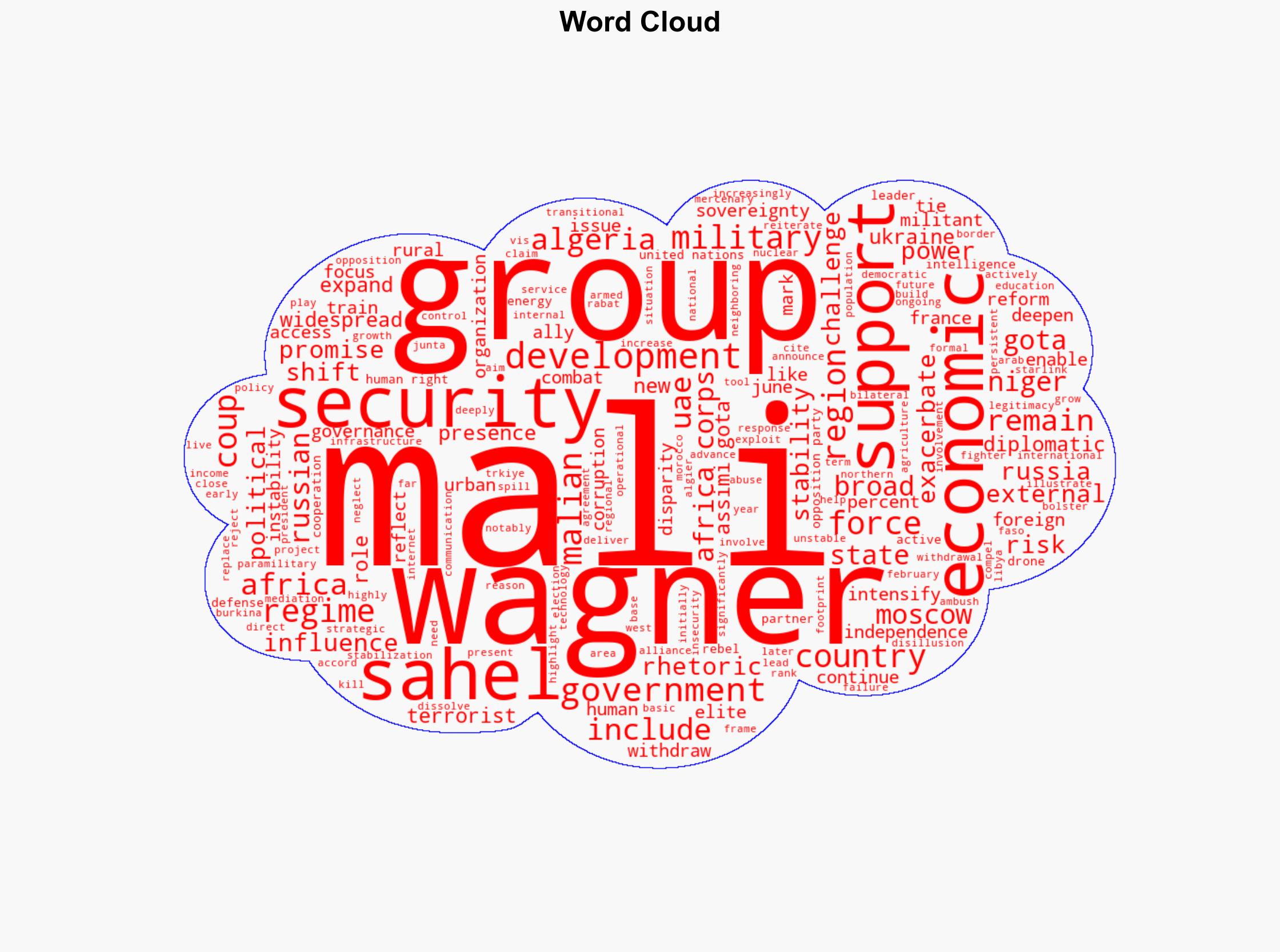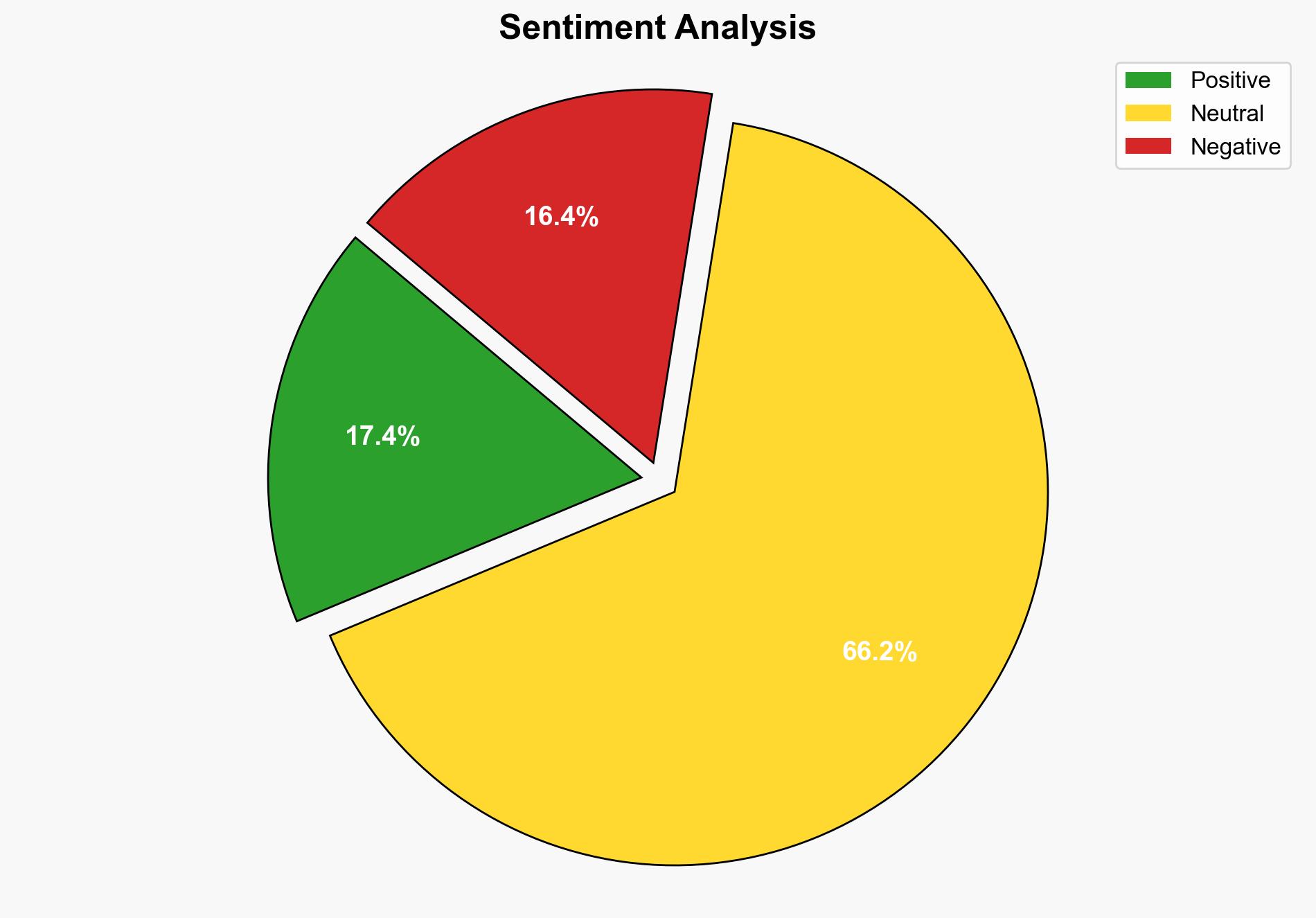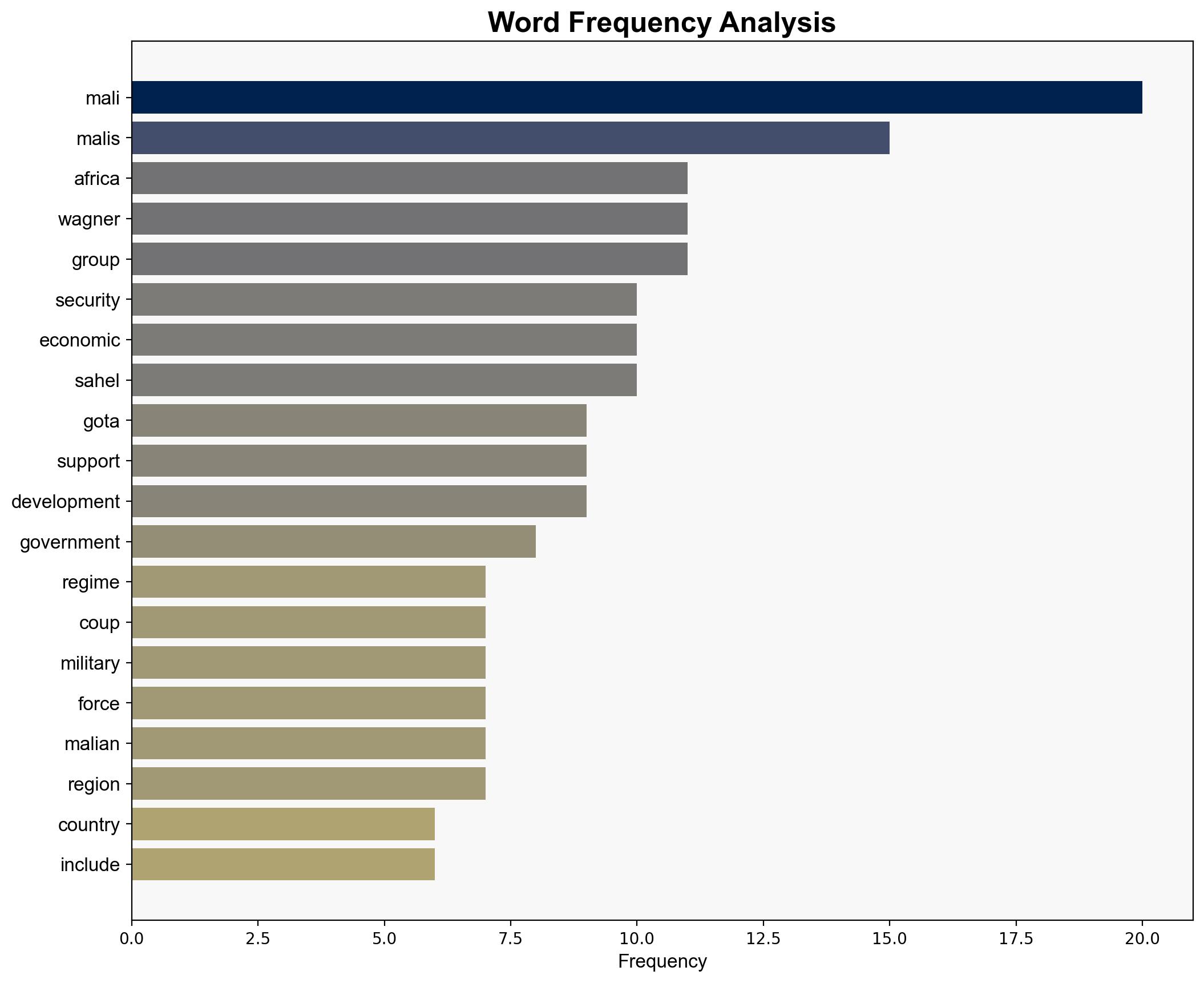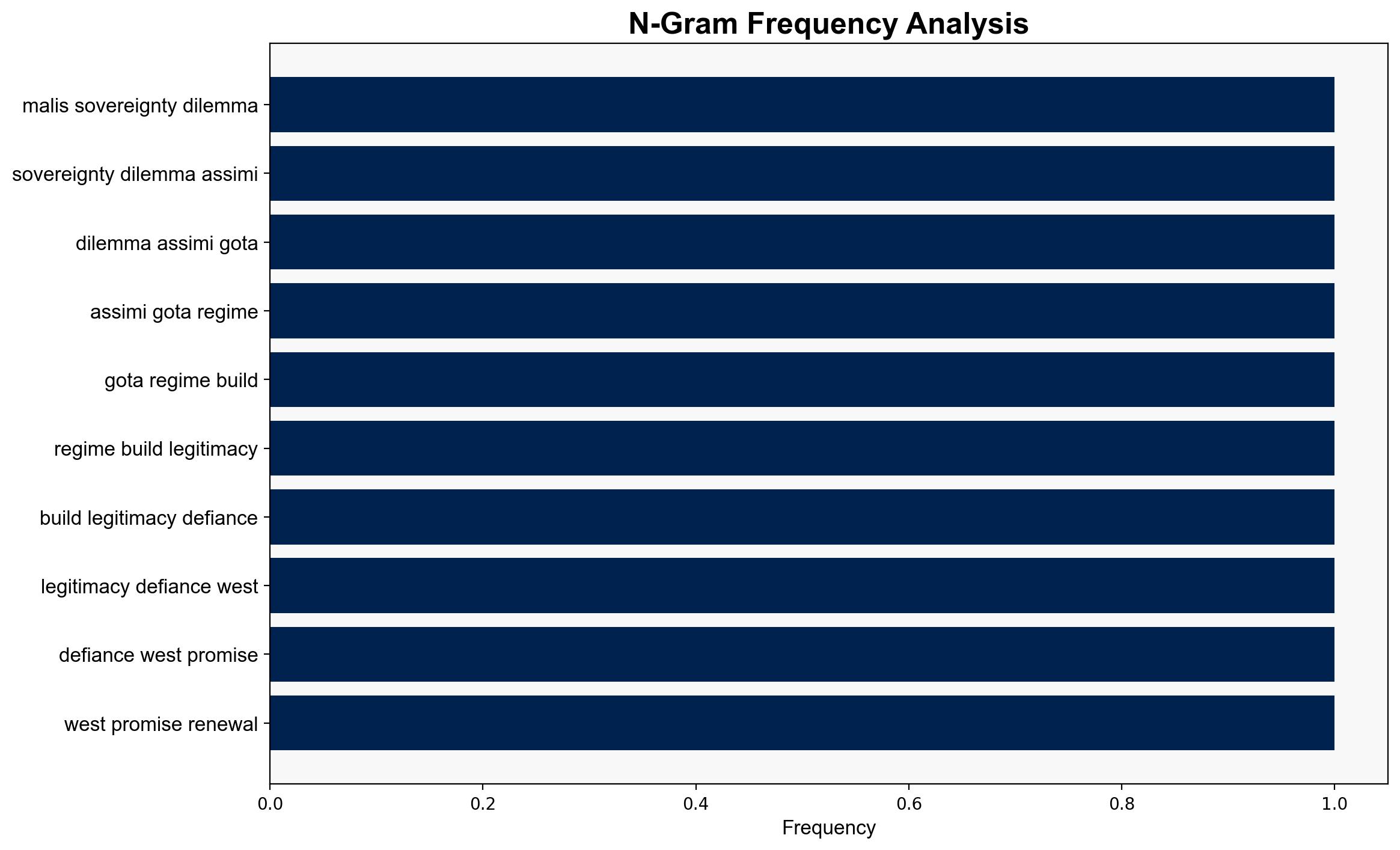Malis sovereignty dilemma – Africasacountry.com
Published on: 2025-10-24
Intelligence Report: Malis Sovereignty Dilemma – Africasacountry.com
1. BLUF (Bottom Line Up Front)
Mali’s current trajectory under Assimi Goïta’s leadership presents a complex sovereignty dilemma, with a strategic pivot towards Russia potentially deepening dependency rather than enhancing independence. The most supported hypothesis suggests that Mali’s nationalist stance and foreign policy realignment may lead to increased authoritarianism and economic stagnation. Confidence Level: Moderate. Recommended action includes diplomatic engagement to encourage democratic reforms and balanced foreign relations.
2. Competing Hypotheses
1. **Hypothesis A**: Mali’s shift towards Russia and away from Western influence will strengthen its sovereignty and lead to improved governance and economic conditions.
– **Analysis**: This hypothesis assumes that the strategic pivot will result in greater autonomy and internal stability. However, evidence of postponed elections, increased authoritarian measures, and continued economic challenges weakens this hypothesis.
2. **Hypothesis B**: Mali’s realignment with Russia will exacerbate internal instability and economic dependency, leading to increased authoritarianism.
– **Analysis**: Supported by the regime’s postponement of elections, dissolution of political parties, and persistent economic challenges. The rhetoric of independence contrasts with tangible outcomes, suggesting a drift towards authoritarianism.
3. Key Assumptions and Red Flags
– **Assumptions**: Hypothesis A assumes that Russian support will be more beneficial than Western aid, which may overlook the complexities of international dependencies. Hypothesis B assumes that current trends will continue without significant intervention or reform.
– **Red Flags**: The postponement of elections and dissolution of opposition parties indicate potential democratic backsliding. The emergence of a new elite class suggests growing inequality, contradicting the regime’s populist rhetoric.
4. Implications and Strategic Risks
– **Geopolitical Risks**: Mali’s pivot towards Russia could strain relations with traditional Western allies, potentially isolating the country diplomatically.
– **Economic Risks**: Continued urban-centric development and neglect of rural areas could exacerbate socio-economic disparities, fueling unrest.
– **Authoritarian Drift**: The consolidation of power by the current regime may lead to increased repression and human rights abuses, potentially destabilizing the region.
5. Recommendations and Outlook
- Encourage diplomatic dialogue to promote democratic reforms and balanced foreign relations.
- Support initiatives aimed at equitable economic development, particularly in rural areas.
- Scenario Projections:
- Best Case: Mali achieves balanced foreign relations and implements democratic reforms, leading to stability and growth.
- Worst Case: Increased authoritarianism and economic stagnation lead to internal unrest and regional instability.
- Most Likely: Continued authoritarian measures with limited economic progress, maintaining current instability.
6. Key Individuals and Entities
– Assimi Goïta
– Russian government
– French government
– United Nations
7. Thematic Tags
national security threats, geopolitical realignment, authoritarianism, economic disparity





